|
When it comes to driveways, many homeowners prefer asphalt paving for its consistent appearance, durability, and affordable cost. Throughout much of the year, asphalt can withstand all weather conditions. However, when winter arrives, a driveway can become unusable due to years of damage caused by freeze-thaw cycles. To understand what this is, how it affects asphalt, and what you can do to protect your driveway, take a look at the useful guide below.
How a Freeze-Thaw Cycle Damages Asphalt A freeze-thaw cycle occurs when temperatures fluctuate back and forth around the freezing point, or 32 degrees. When the temperature is above freezing, water will seep into tiny cracks and pores in asphalt paving. When the temperature drops back down, this moisture will freeze and expand, forcing cracks to grow and weakening the paved surface. Once the water thaws again, it can spread deeper within the pavement, and the cycle repeats. If it penetrates far enough, ice and frost can even degrade the foundation beneath a driveway and cause soil to settle, weakening the pavement even further. Tips for Protecting Your Asphalt Driveway The first step to protect asphalt from freeze-thaw cycles is to ensure that it’s properly graded when laid down. Asphalt should have a slope of at least 2% to help it drain off as much water as possible and minimize the risk of saturation. After installation, the most effective way to protect an asphalt driveway is to have it sealcoated every two to three years. There are many varieties of asphalt sealcoating, the most common of which is coal tar emulsion, a mixture of coal tar, water, emulsifying agents, and additives. When applied to asphalt, sealcoating forms a protective, watertight layer that can substantially reduce or eliminate the risk of cracking and spalling. Finally, if you find any cracks in your driveway, you can limit the spread of damage by having them repaired and resealed as quickly as possible. If you need reliable asphalt paving or snow removal, contact Guarco Construction in Granby, CT. We are family-owned and -operated, and have served Hartford County and the surrounding areas since 1974. We specialize in commercial and residential paving and snow removal. We are renowned for their friendly, dependable service, attention to detail, and competitive rates. Learn more about us online or call (860) 278-5558 to schedule your snow removal or asphalt paving.
0 Comments
With the arrival of a Connecticut winter, you can almost certainly expect a season full of snow, ice, and freezing rain. These elements can be difficult for both people and structures to deal with, and your business's parking lot is no exception. However, proper preparation will help protect your commercial pavement and reduce the risk of damage in the colder months ahead; here are a few ways to get your parking lot ready for winter weather.
How to Prepare Your Parking Lot for Winter 1. Consider Resurfacing Commercial pavement resurfacing involves adding a new layer of asphalt on top of the existing surface. The months leading up to winter are an excellent time to invest in this service. It strengthens your parking lot and increases its durability against the harsh winter elements. It also extends the life span of your parking lot, often up to 15 years or more. If your commercial paving professional offers sealcoating, consider having sealant applied to your resurfaced lot. Sealcoating is a thin, clear, protective membrane that prevents damage from water—always a concern in winter—as well as from oils and sunlight. 2. Fill Cracks Cracks in pavement create an easy opportunity for water to enter and penetrate the surface. Over time, this causes the structure to weaken, increasing the size of the cracks and contributing to the development of potholes. Since you can pretty much depend on the winter being a wet season, filling parking lot cracks now will mean less chance of water getting into and damaging your pavement. If you're not going to sealcoat, filling cracks should be essential parking-lot prep-work for winter. 3. Repaint Lines When parking lot lines are weak, faded, or chipped away, they are hard enough for your customers and employees to see. Add a layer of snow or ice on top, and they are virtually indecipherable. Not only can this cause confusion and chaos in your parking lot, but it can also lead to accidents and injuries, opening you up to liability issues. Before winter weather starts to ramp up, take the time to repaint all lines, including space dividers, handicap zone markers, and traffic direction indicators. If you need reliable asphalt paving or snow removal, contact Guarco Construction in Granby, CT. We are family-owned and -operated, and have served Hartford County and the surrounding areas since 1974. We specialize in commercial and residential paving and snow removal. We are renowned for their friendly, dependable service, attention to detail, and competitive rates. Learn more about us online or call (860) 278-5558 to schedule your snow removal or asphalt paving. Asphalt paving is a durable choice for commercial parking lots. Over time, however, cracks can develop due to temperature changes and high volumes of traffic. While it’s possible to prevent cracks to some degree, at a certain point, you may need to have repairs performed. Here’s what you should know about keeping cracks out of your lot for safety and aesthetic reasons.
Preventing Cracks One of the most effective ways to protect parking lots against cracks is to have your pavement coated. Sealcoating is a service offered by many asphalt paving companies that adds an extra protective layer on top of the pavement’s surface. This creates an additional line of defense against the agents that could cause cracks, potholes, and other types of damage. For instance, it protects against oxidation, spills from oil and other chemicals, water damage, and UV rays. Most commercial parking lots will need to be sealcoated every two to four years. Cleaning your lot is also a good way to protect against cracks. Even if small debris may not seem like a big deal, the buildup of detritus like leaves and dirt can cause friction and degrade the material. Finally, try to keep weight evenly distributed on your lot. This may mean repainting the lines to redistribute traffic patterns or parking spots from time to time. Repairing Cracks If you notice a crack in your lot, be sure to contact your asphalt paving contractor promptly. Left unaddressed, water can seep into cracks and then freeze and expand when the temperature drops. This can create deeper cracks and widespread damage. Contractors can fill minor cracks with commercial-grade materials to prevent spreading. If cracks are widespread and resemble alligator scales (known as alligator cracking), this could indicate damage to the foundation of the lot, which may require more extensive repairs. If you need reliable asphalt paving or snow removal, contact Guarco Construction in Granby, CT. We are family-owned and -operated, and have served Hartford County and the surrounding areas since 1974. We specialize in commercial and residential paving and snow removal. We are renowned for their friendly, dependable service, attention to detail, and competitive rates. Learn more about us online or call (860) 278-5558 to schedule your snow removal or asphalt paving. Over time, excessive weight, traffic, and extreme weather can all wear on asphalt paving, causing it to crack. Before it can be fixed, the type of crack should be determined so that the correct method of repair can be used. Take a look at the five most common types of asphalt paving distress.
What Are the Most Common Types of Asphalt Cracks? 1. Cracking Simple cracks can form due to excessive loads, temperature fluctuations, and the environment. In order to repair it, the surface level needs to be removed and a new layer of pavement applied. Make sure that heavier trucks don’t sit in one spot too long to avoid dealing with cracks. 2. Distortion Distortion includes rutting, shoving, depressions, swelling, and patch failure. These issues can be caused by uneven or insufficient pavement thickness or asphalt that's too soft. The area should be repaired with a hot-mix patch. 3. Disintegration Disintegration is when the asphalt breaks up into tiny pieces that get lost. It can show up in the form of a pothole. Potholes can occur when a smaller crack isn’t repaired and worsens due to traffic or weather. The material will need to be cut out, and the hole filled with asphalt mix. 4. Skidding Hazards When water is sitting on the surface of the pavement, it creates a skidding hazard. This can happen when there isn’t proper drainage on the pavement. The asphalt will require fresh leveling to ensure the water drains off. 5. Surface Treatment Distress When the surface treatment loses the aggregate cover too soon, this indicates that the asphalt wasn’t applied correctly, or it was used too soon. To fix this, spread hot coarse sand over the affected areas, and roll it out with a pneumatic-tired roller. If you need reliable asphalt paving or snow removal, contact Guarco Construction in Granby, CT. We are family-owned and -operated, and have served Hartford County and the surrounding areas since 1974. We specialize in commercial and residential paving and snow removal. We are renowned for their friendly, dependable service, attention to detail, and competitive rates. Learn more about us online or call (860) 278-5558 to schedule your snow removal or asphalt paving. If you’ve noticed standing water pools in your parking lot after a rainstorm, it’s important to take a closer look. Pooling water is a sign of changes in the asphalt and it can lead to more extensive issues. Understanding what causes this issue will ensure you take steps to prevent it and secure asphalt paving services to repair the damage.
Issues That Cause Pooling Water Pooling water is a concern because it erodes asphalt. The constant water exposure breaks down the adhesive and rock, resulting in cracks and collapsed areas, called potholes. These are dangerous to pedestrians because they’re a trip and fall hazard. They could also damage motorists’ tires and vehicles. Water pools because the asphalt is sinking and forming a depression. It could be from slow water erosion over time that flattened the drainage grade, or the soil beneath the parking lot could be shifting, causing areas to collapse. Either way, the water coverage will only further erode the hardscape, resulting in larger pools and more damage. Ways to Prevent Puddling Start by maintaining the sloped area. When pooling begins, contact asphalt paving professionals. They can apply a fresh layer of asphalt to these areas that will divert rainwater to drainage ditches. It's a good time to also discuss sealcoating. By applying a water-resistant sealant to the parking lot, you reduce how quickly rainwater will erode the asphalt surface. Sealant needs to be reapplied every 3-5 years, so make it part of your long-term maintenance plan. If you need reliable asphalt paving or snow removal, contact Guarco Construction in Granby, CT. We are family-owned and -operated, and have served Hartford County and the surrounding areas since 1974. We specialize in commercial and residential paving and snow removal. We are renowned for their friendly, dependable service, attention to detail, and competitive rates. Learn more about us online or call (860) 278-5558 to schedule your snow removal or asphalt paving. Asphalt, used to install strong road surfaces, can last for decades with maintenance and care. However, heavy loads and regular traffic can wear it down, creating fractures known as alligator cracks. Besides being unsightly, these fissures can cause damage to drivers if they develop on your commercial property's parking lot. Pavement resurfacing can help fix these problems, but the guide below will explain how you can avoid them.
What Are Alligator Cracks? These breaks in asphalt are known as alligator cracks because the broken pattern looks similar to the animal's scaly skin. They develop due to serious stress on the pavement, which various factors can cause. A common culprit is the surface's age. Although regular traffic won't be enough to damage the road instantly, years of supporting vehicles of all sizes will help wear down a surface faster. Another reason could be that the surface constantly deals with heavy vehicles, like semi-trucks. Improper drainage can also lead to breaks, as water can erode the material if it infiltrates it. Even a poor installation can weaken the quality of the surface and leave it susceptible to cracks, requiring pavement resurfacing. Why Should You Treat and Prevent Alligator Cracks? Alligator cracks are dangerous because the breakage can slowly cause the road to crumble, causing potholes to arise. If these openings develop, they can harm the cars driving over them. For instance, they can lead to damaged tires or suspensions. Pedestrians visiting your commercial property can also trip over these cracks. In both cases, you may be held liable for damages and injuries. To prevent legal problems and keep guests entering the property safe, take action to prevent these cracks from developing. Designate time frames for heavy vehicles, ensuring they don't spend too much time on the road. This approach will reduce the pressure on the material. You can also use sealants to fill in smaller fractures before they have a chance to grow. If you need reliable asphalt paving or snow removal, contact Guarco Construction in Granby, CT. We are family-owned and -operated, and have served Hartford County and the surrounding areas since 1974. We specialize in commercial and residential paving and snow removal. We are renowned for their friendly, dependable service, attention to detail, and competitive rates. Learn more about us online or call (860) 278-5558 to schedule your snow removal or asphalt paving. Your driveway goes through a lot, including weather, constant car and foot traffic, tree roots, and weeds. When your driveway is over 10 to 15 years old, you might start to notice cracks or water pooling in the pavement, which could mean you need driveway resurfacing. Here are a few of the signs that your driveway needs resurfacing.
How to Know You Need Driveway Resurfacing 1. Drainage Issues In older driveways, it’s common to have drainage issues where water pools in patches or runs down the middle of the surface. Driveways need to be properly sloped so that water can drain off the sides instead of creating puddles on the surface. Not only can water pooling cause your driveway to age faster, it also creates a slippery surface which can be dangerous. Resurfacing the driveway will give it the slope it needs for correct drainage. 2. Cracks or Potholes Cracks are one of the most common signs that your driveway is getting old. They usually start as small cracks, but can quickly become potholes. During the winter time, water freezes inside the cracks, causing them to grow larger. If there are just a couple of cracks, you may be able to repair them, but eventually you may require a resurfacing. 3. Crumbling Edges The edges of the driveway are the most vulnerable to water infiltration. They can easily weaken and break off, showing signs that the driveway is beginning to erode. It may also mean that the top layer of the driveway is too thin or damaged, requiring resurfacing. If you need reliable asphalt paving or snow removal, contact Guarco Construction in Granby, CT. We are family-owned and -operated, and have served Hartford County and the surrounding areas since 1974. We specialize in commercial and residential paving and snow removal. We are renowned for their friendly, dependable service, attention to detail, and competitive rates. Learn more about us online or call (860) 278-5558 to schedule your snow removal or asphalt paving. Most homeowners are aware that winter weather can cause wear and tear on their driveways, patios, and other residential paving surfaces. Unfortunately, fewer realize that summer maintenance is also necessary for their driveway to look its best and last as long as it should. With regular care, your driveway should not need replacement or serious repair for 20 years or longer. To avoid cracks and other issues, below is a guide to summer driveway maintenance.
How Does Summer Weather Affect Residential Paving? Summer heat draws moisture from the soil, which changes the shape and consistency of the ground. This can cause your driveway or patio to buckle and crack. Additionally, ultraviolet (UV) radiation from the sun causes the surface to fade and discolor. Over time, the UV radiation causes the connective polymers within the asphalt to break down and turn to dust. You may notice spalling along the edges and cracks forming in the center. Eventually, potholes will form and the asphalt may need to be replaced. What Can You Do to Maintain Your Driveway? Regularly sweep your driveway clean of leaves, dirt, and other debris, which can stain the surface and make it look unsightly. Remove algae and mildew using a pressure washer. Be alert for sunken areas beneath your driveway, which can cause the slabs to appear uneven. If you notice such changes, consider slabjacking or leveling before the slabs crack and spall. Regular sealcoating also helps extend its life and protects asphalt against damage by the sun's radiation. For best results, have this applied professionally every 3 to 5 years. If you need reliable asphalt paving or snow removal, contact Guarco Construction in Granby, CT. We are family-owned and -operated, and have served Hartford County and the surrounding areas since 1974. We specialize in commercial and residential paving and snow removal. We are renowned for their friendly, dependable service, attention to detail, and competitive rates. Learn more about us online or call (860) 278-5558 to schedule your snow removal or asphalt paving. Investing in parking lot maintenance for your property’s asphalt paving contributes to its longevity and durability. Spring remains the best time of the year for this, as it provides an opportunity to find underlying issues after a long, harsh winter. Here are a few tips to help you keep the pavement in good condition.
How to Maintain Asphalt Parking Lots 1. Perform a Visual Inspection By thoroughly examining your asphalt paving for cracks and other damages, you can pinpoint which areas need to be repaired. Although it is tempting to ignore small cracks, take note of them because they can turn into bigger, costlier problems in the long run. 2. Clean Debris and Puddles There are several forms of dirt and debris brought forth by changing seasons. After the winter, inspect your parking lot's surface and drainage system for any water that may have gathered there. Remove any overgrown bushes or branches from your parking lot, as well. It will look better and prevent tripping accidents and vehicle damage when it's cleaned up. Consider creating a regular cleaning schedule to make this a more effective solution and make upkeep easier. 3. Sealcoat After you've cleared your parking lot, sealcoating can give an extra layer of protection against harsh weather. It protects the asphalt pavement from the damaging effects of oxidation, weathering, and vehicle fluids. This procedure also improves the appearance and restores the black shine. 4. Fill Cracks After inspection and cleaning, it’s time to look back on your list and address the cracks you have found. Your asphalt paving contractor will use various repair methods to fill these cracks. During this process, the experts may uncover other problems. For example, they might find out that tree roots damage compromises the integrity of your parking lot from underneath. If you need reliable asphalt paving or snow removal, contact Guarco Construction in Granby, CT. We are family-owned and -operated, and have served Hartford County and the surrounding areas since 1974. We specialize in commercial and residential paving and snow removal. We are renowned for their friendly, dependable service, attention to detail, and competitive rates. Learn more about us online or call (860) 278-5558 to schedule your snow removal or asphalt paving. Asphalt driveways are smooth and durable when you care for them properly. However, water can cause damage if there aren’t proper drainage systems in place around the pavement. Here's what you can do to prevent standing water and ensure you don't need a premature driveway replacement.
How to Ensure Your Asphalt Driveway Drains Correctly 1. Direct Storm Water Away From PavementYour gutters and downspouts are designed to channel rainwater away from your home. However, if the ends of the downspouts stop near your driveway, all that water can easily seep into the asphalt or start to puddle. Luckily, you can easily fix this by simply directing downspouts away from the pavement. You may need to purchase extenders to carry the water further away from the driveway. 2. Control the SlopeIf your property slopes toward your driveway, water will naturally run onto it. Ideally, your yard should be slightly graded so that there’s a very subtle slope that allows water to run away from your home, and that angle should also ensure the moisture doesn't accumulate on the driveway. A gradual slope prevents excess soil erosion and allows water to gradually seep into the earth instead of gathering in one spot at the bottom of a hill. If your home is on a large hill, you may need a retaining wall to facilitate a less steep slope. 3. Repair Cracks & Holes Right Away Surface imperfections like cracks and potholes trap water and allow it to seep deeper into the asphalt. Water weakens the base by breaking apart the bonding element and can cause potholes to grow larger through freeze-thaw cycles. Have a contractor fill in these spots as soon as they form to prevent further damage. Professionals should also seal the asphalt once every three years to minimize water penetration. If you need reliable asphalt paving or snow removal, contact Guarco Construction in Granby, CT. We are family-owned and -operated, and have served Hartford County and the surrounding areas since 1974. We specialize in commercial and residential paving and snow removal. We are renowned for their friendly, dependable service, attention to detail, and competitive rates. Learn more about us online or call (860) 278-5558 to schedule your snow removal or asphalt paving. |
Carl Guarco2nd Generation Landscaper and expert in Snow Removal and Paving. Archives
November 2022
Categories |
Company |
Commercial |
|
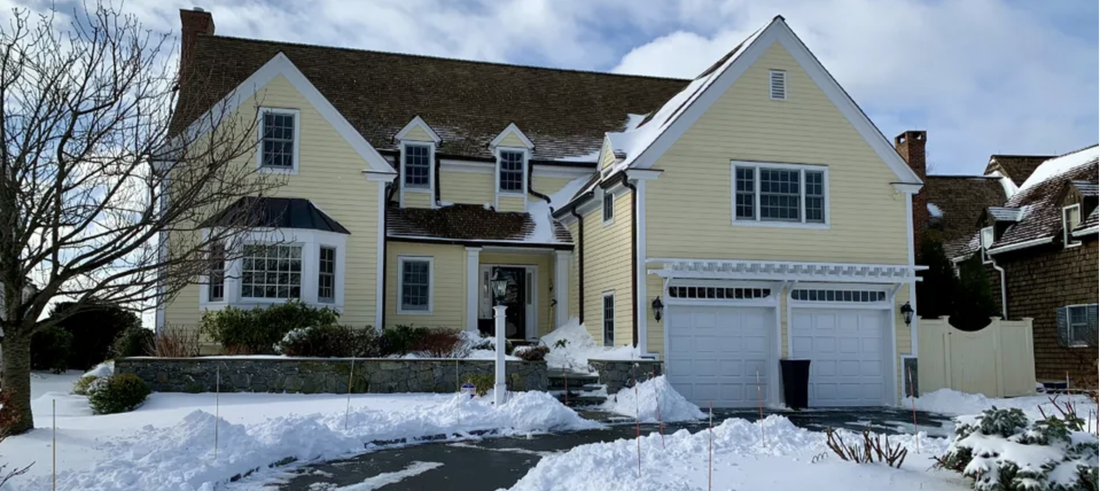
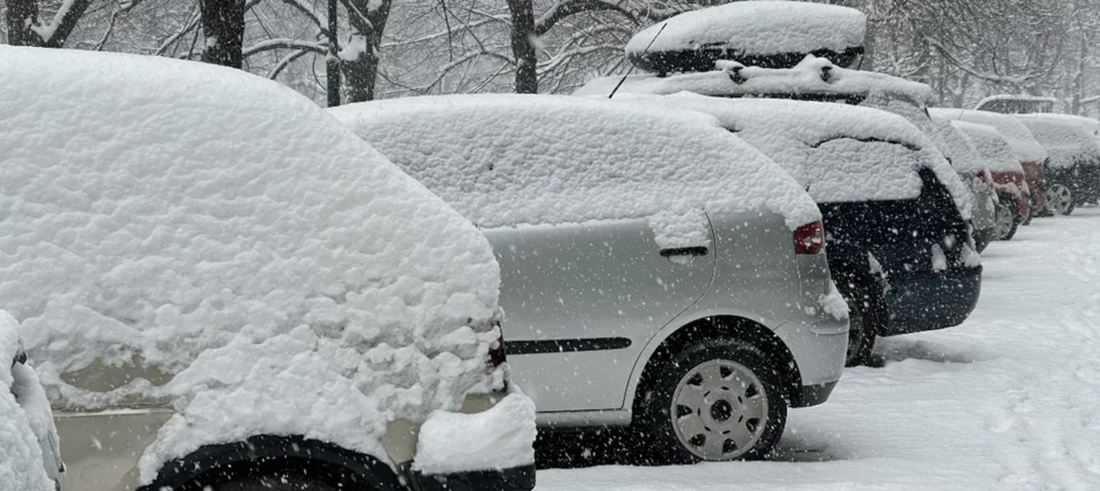
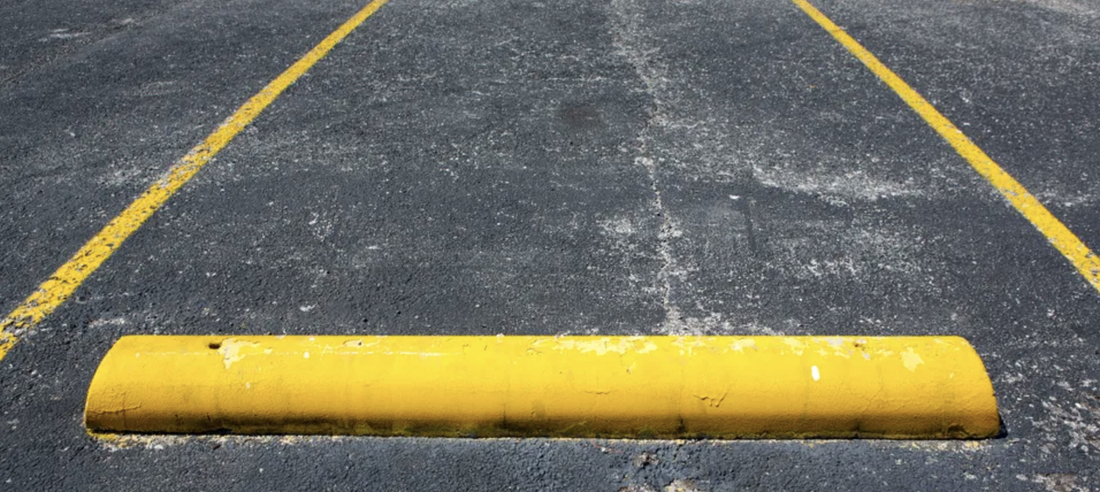
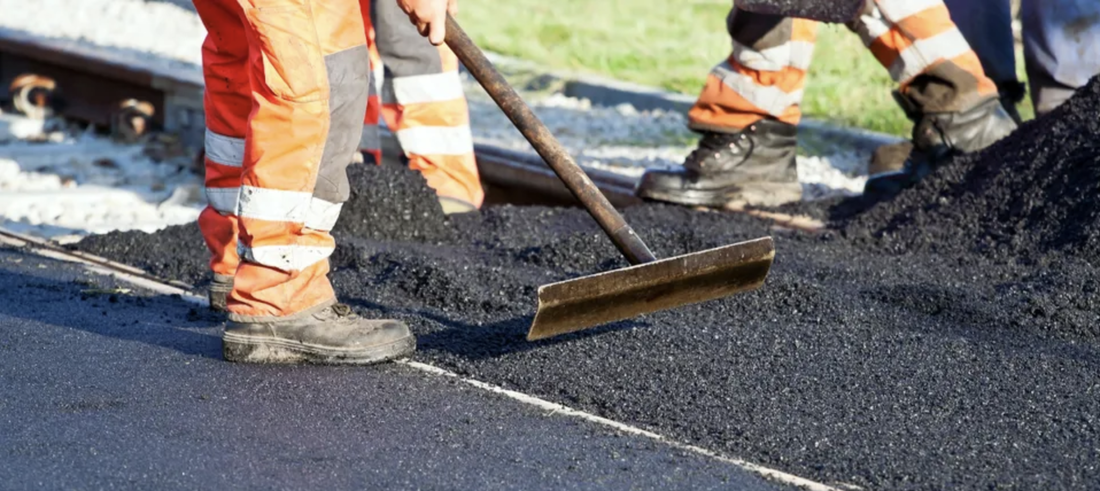
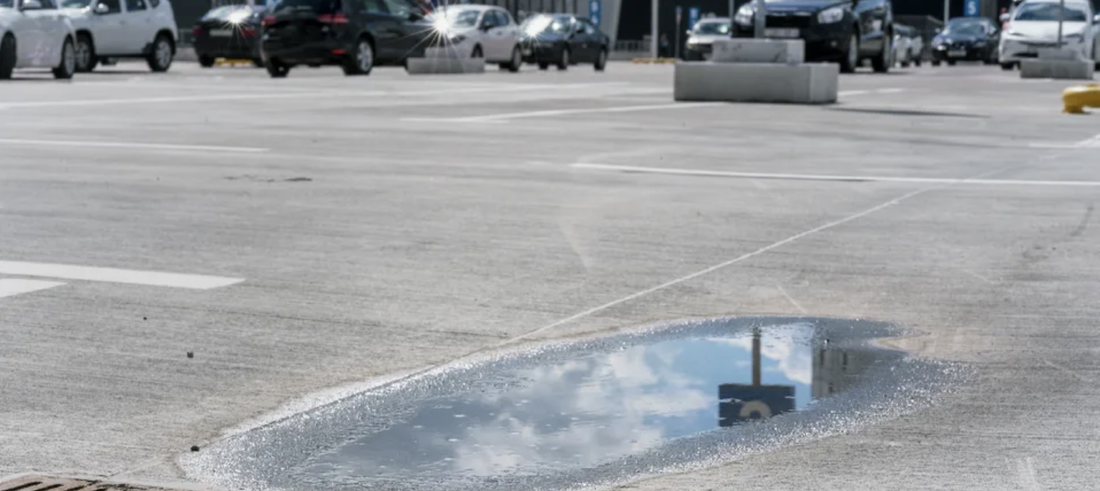
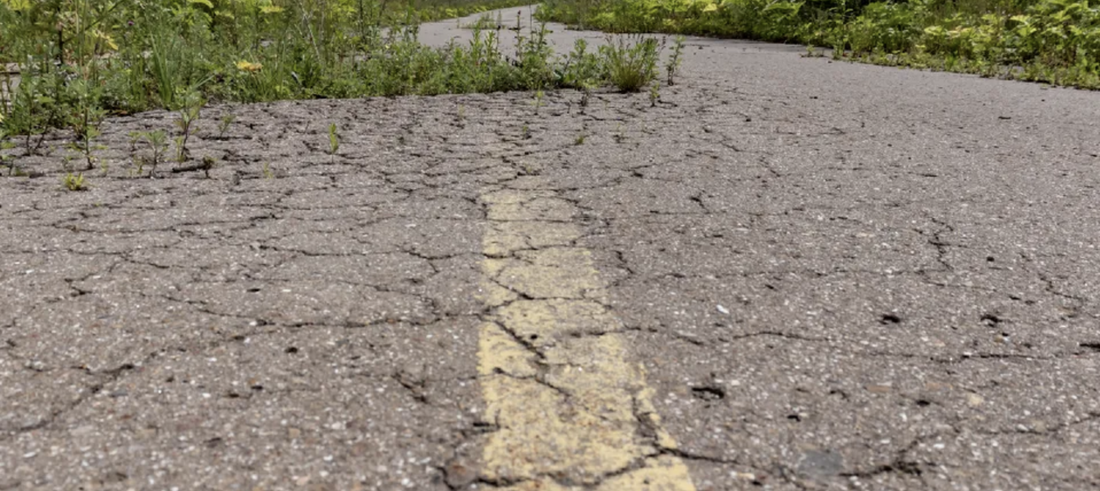
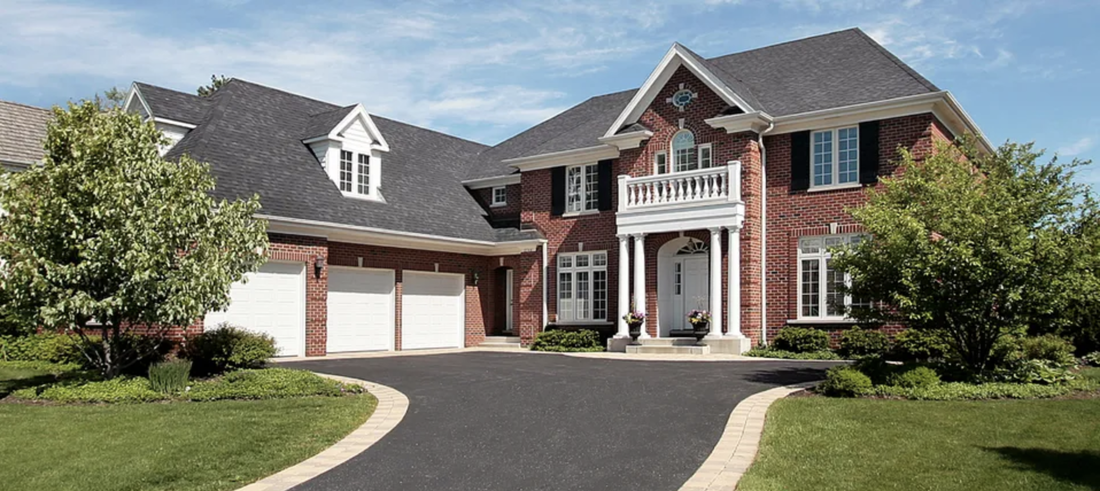
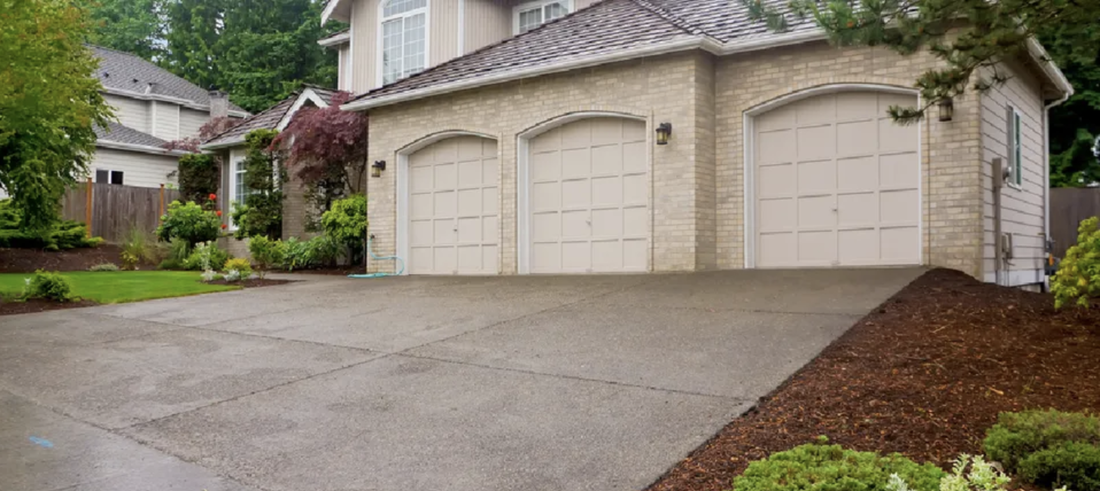
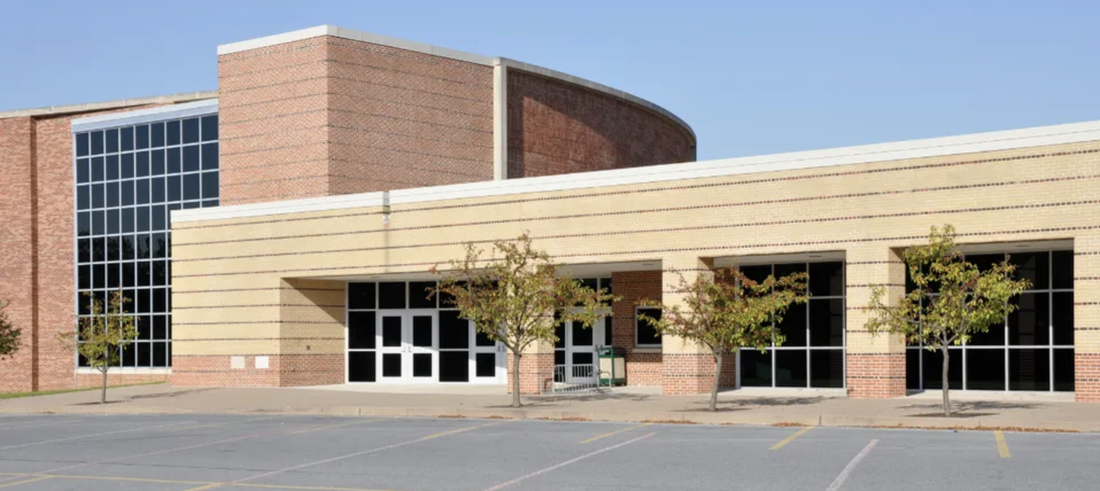
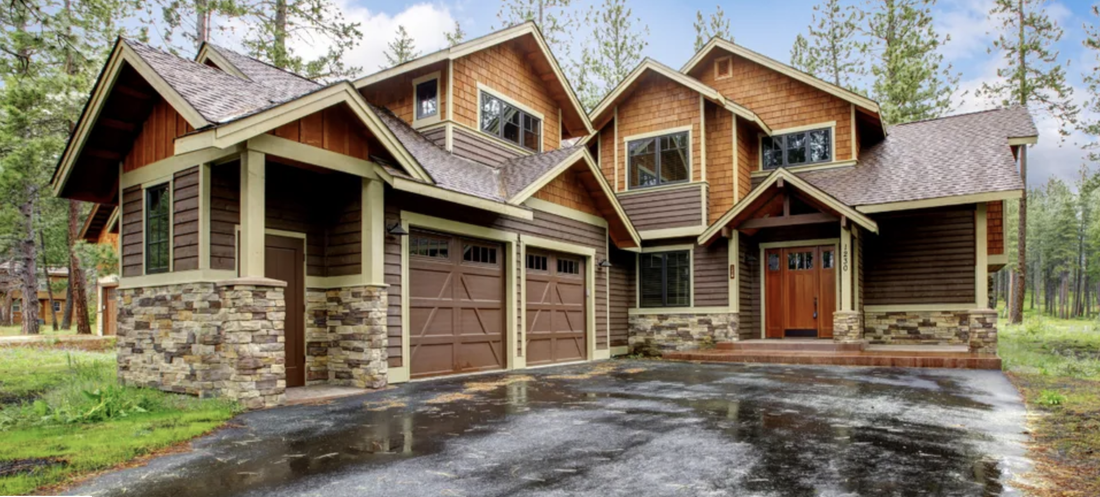
 RSS Feed
RSS Feed

